Editor’s Note: We are posting this article by guest writer David Reeder as some useful background information for current events.
The Crimea Catalyst
Looking at events in Crimea in 2014 to inform current Russian operations.
David Reeder
The following timeline is a condensed version of events leading to the Russian seizure of Crimea.
It uses that overview as an example of the reasoning/rationale behind Russia’s actions in Ukraine and the surrounding region.
Georgia → Crimea → Donbas (Donetsk/Luhansk) → Ukraine → ?
Note: This isn’t intended to be an opinion piece. It’s not meant to take sides or persuade you.
Become informed. Corroborate what you doubt. Form your own opinion. Accept that realpolitik exists – and will continue to do so with or without anyone’s approval.
“Every man has the right to an opinion but no man has a right to be wrong in his facts.” Bernard Baruch, Associate Press, 1946
The Invasion of Ukraine
In 2022 military forces of (or allied to) the Russian Federation invaded Ukraine. It is the first conventional combined-arms military “land grab” in Europe since WWII.
Some commentators have referred to the build-up of Russian forces on Ukraine’s border and destabilization operations in separatist regions as déjà vu. They compare it to events leading to the Russian seizure of Crimea in 2014, then debate possible reasons for both actions.
The rationale for the invasion and Russian recognition of the Donetsk and Luhansk immediately prior is simple to explain – but to paraphrase Clausewitz, simple things are difficult.
We’ll use an encapsulated rundown of the Crimean peninsula to explain these difficult simple things.
The catalyst for the seizure of Crimea can be distilled to geostrategic necessity.
- In 2014 Crimea belonged to Ukraine.
- Ukraine shares a long border with Russia. Russia has been at odds with NATO since the alliance’s inception in 1949.
- In the months prior to Russia’s “intervention” Ukraine was on the cusp of joining the European Union (EU).
- Membership in the EU is seen by Moscow (correctly) as being a precursor to joining NATO.
Russian action to assure control of Crimea was all but a foregone conclusion.
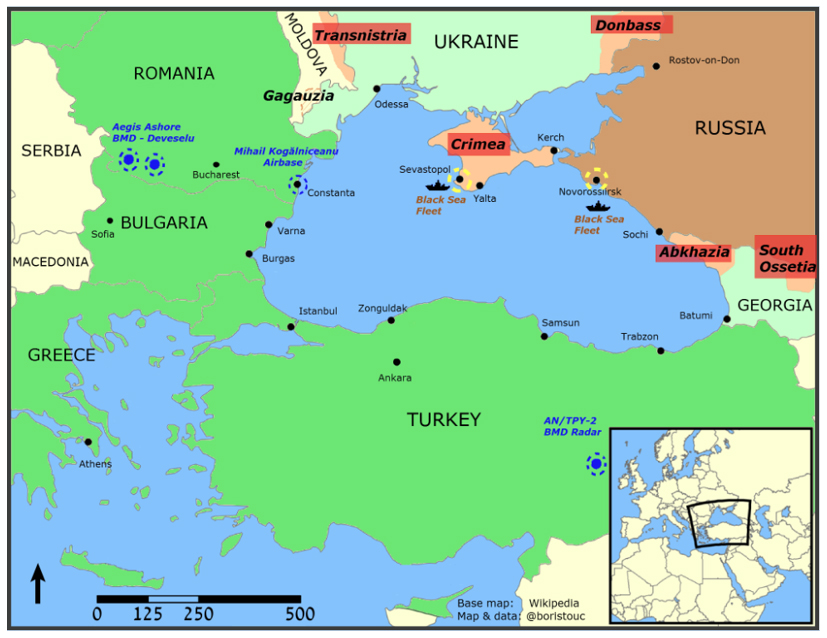
From an (admittedly ruthless) pragmatic perspective, Moscow had no choice but to act. Additional factors (such as its obligation to protect ethnic Russians by law, q.v.) provided sufficient justification to skew the international narrative and get away with it.
A pro-Russian Kyiv is vital to Moscow because:
- The presence of a pro-Western EU/NATO member state on the Northern European Plain (a corridor straight into Russia) is too great a threat to allow, and
- Control of Crimea is, in Russia’s eyes, an existential matter.
The Crimean port city of Sevastopol (formerly leased by Moscow from Kyiv) is home to Russia’s most significant warm water, deepwater port on the Black Sea. Complete control of it is a geographic and military imperative. It provides access to the Sea of Marmara and from there to the Mediterranean, is in a position to control access to the Sea of Azov, and is superbly positioned to project power west (Moldova/Transnistria, Romania, Bulgaria), south (Turkey), and east (Georgia/Abkhazia).
As an example of use, it was from Sevastopol that RFS Nikolay Filchenkov and other vessels delivered the 810th Independent Naval Infantry Brigade to Latakia Syria in mid-2015 when they first began openly intervening there.
It’s also important to note long-term Russian naval strategy. The Black Sea Fleet has more than tripled in size since 2015. Projection of naval power in – and out from – the Black Sea is the primary focus of the Russian Maritime Policy signed by President Putin in 2015.
Russia could no more afford to lose Sevastopol than it could allow NATO bases directly on its border or the Black Sea littoral. Right, wrong, or indifferent, geopolitics forbade it.
So What is Crimea?
Crimea is a peninsula in Europe. It’s approximately the size of the state of Maryland and is almost surrounded by the Black Sea and the Sea of Azov. It’s connected to the continent by the Isthmus of Prekop to the north and separated from Russia by the very narrow Kerch Strait to the east.
Crimea was Russian (~ish) for 300 years or so. It was then Ukrainian (~ish) for about 60, including most of the Cold War. Before the Russians, it belonged to the Tatars, and before that the Taurians, Scythians, and other groups. In the interest of time, we’ll fast forward straight to the Mongols.
That’s where it becomes easier to relate historic and modern conflict.
This timeline is a basic overview of Crimea and surrounding polities from the 13th century to 2014 with a focus on events that help illuminate its seizure by the Russian Federation under President Vladimir Putin and the subsequent invasion of Ukraine in 2022
Crimean Timeline to Inform Current Events
c. 1250-1440
Mongols of the Golden Horde take control of the Crimean peninsula in the early 13th century. Its capital is the city now known as Staryi Krym.
From c.1300 to 1783 Crimea is considered Tatar territory.
c. 1440-1450
Crimean Tatars establish an independent Crimean Khanate. It is principally held by nomadic Tatar (and Nogay) tribes and ruled by a Khan who is said to be a direct descendent of Genghis Khan.
An Ottoman Sultan later captures a Crimean Khan, releasing him in return for him accepting Ottoman rule. The Crimean Khanate becomes a tributary principality of the Ottoman Empire.
1571
Forces of the Crimean Khanate and Ottoman Empire, longtime enemies of the Tsar of Russia, burn Moscow. Estimates of the city’s death toll range from tens of thousands to more than 200,000.
1654
January. Beginning of the Treaty of Pereyaslav. A council held in then-Russian Pereyaslav, now-Ukrainian Pereiaslav. The treaty is finished in April establishing the allegiance of an (autonomous) Cossack “Hetmanate” in return for the protection of the Russian Tsar. This is intended to cleave much of what is now Ukraine from the Commonwealth of Poland and leads to the Russo-Polish “Thirteen Years” War.
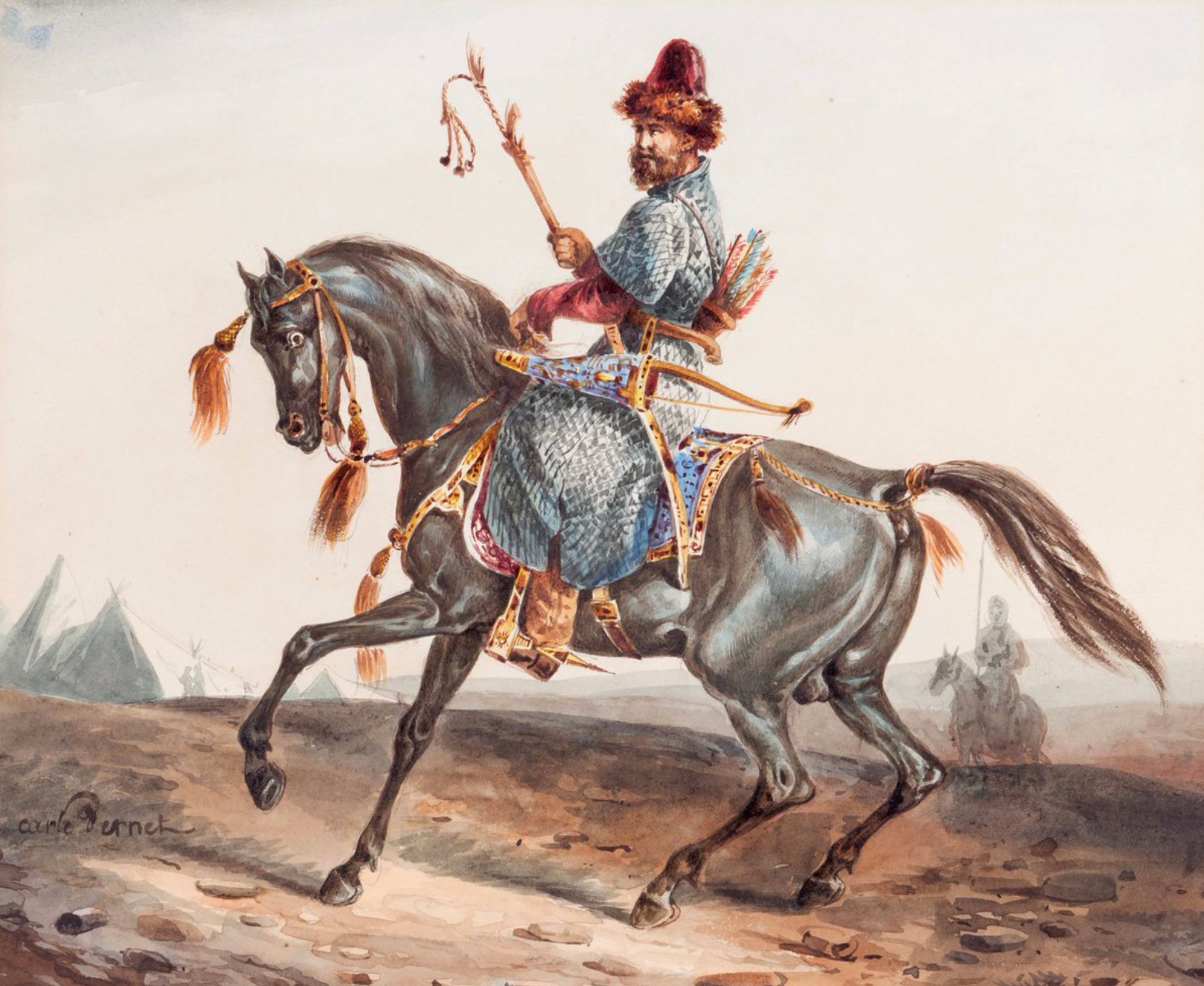
1654-1667
Thirteen Years War (also First Northern War or Russo-Polish War) fought over territory that is today Ukraine and Belarus. Today’s city of Kiev/Kyiv is, at the time, called Kijów – because it’s Polish.
The war is triggered by the Khmelnytsky Rebellion of Cossacks and interference by the Tsar of Russia on (some of) the Cossacks’ behalf. Several campaigns and sieges ensue, including some wherein troops of the Crimean Khanate fight as Polish allies against Russia. Cossacks of the Hetmanate, itself in a civil war, fight on both sides of the conflict.
1667
Truce of Andrusovo. The region historically referred to as “Left-bank Ukraine” (east of the Dnieper River), including what are today the oblasts of Chernihiv, Poltava, and Sumy, is ceded to Russia by Poland. The Commonwealth does retain some of western Ukraine. Historians consider this to be the start of Russia’s rise as a “Great Power” in Eastern Europe. Subsequent Russian and later
Soviet official history regards this as a “reunification” of Ukraine and Russia.
1674
After six years of war, the Russian Empire and Ottoman Empire agree on the Treaty of Kuchuk-Kainarji, recognizing the independence of the Crimean Khanate. In it, both powers agree not to interfere in Crimean affairs.
1686
Eternal Peace Treaty of 1686. This agreement re-affirms Russia’s sovereignty over “Left Bank Ukraine”.
1783
Internal Crimean conflict exacerbated by Russian influence. Empress Catherine the Great intervenes and effectively annexes the region as the Taurida Governorate. The last ruling Khan flees and is eventually executed by the Ottomans.
It is the first predominantly Muslim area to be lost by the Turks, Crimean Tatars being the largest group of that faith in the region. The Nogay is another Muslim ethnic group in the region. A number of substantial non-Tatars minorities (and religions, including Orthodox, Catholic, and Jews) live in Crimean cities.
During the course of this decade, Nogay land is confiscated and tens of thousands of them are killed or forcibly removed from Crimea and settled elsewhere.
From 1783 to 1954 Crimea is considered to be Russian territory
(As is Ukraine, by the Russians, after the Treaty of 1667.)
c. 1853 – 1856
Crimean War. Three years of war between the Russian Empire and an unlikely alliance of western and Mediterranean powers (including England, France, and the Ottoman Empire) devastate the region. A significant portion of the Tatar population (possibly as much as 23% of Crimea’s total population) flee. This exodus begins to drastically alter the demographics of Crimea.
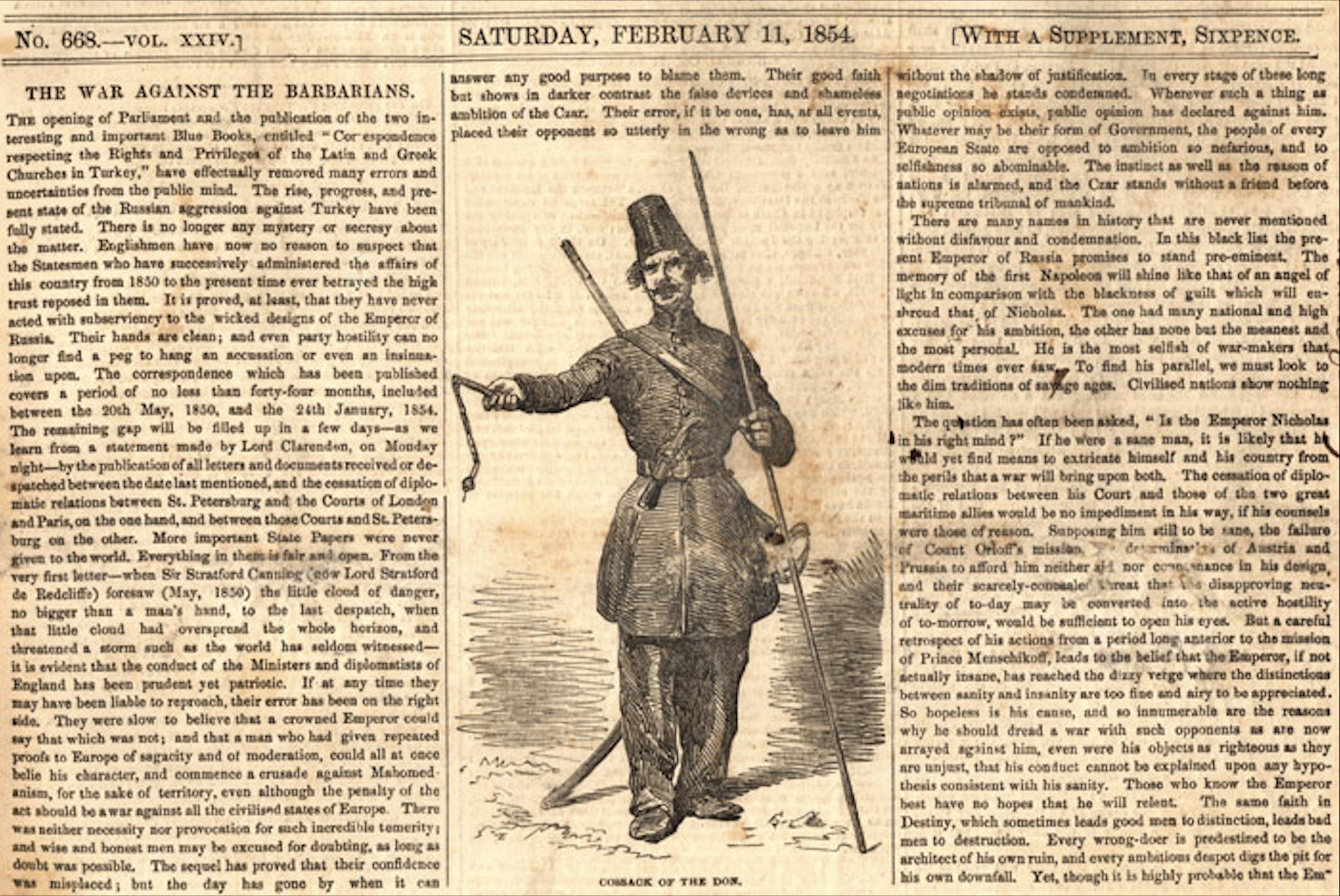
c. 1917-1923
Russian Civil War. Crimea is largely anti-Bolshevik. It changes hands several times during the war, going through a series of at least a dozen different “governments”. None last more than a few months.
c. 1921
The Crimean Autonomous Soviet Socialist Republic becomes part of the Soviet Union. Late that year the “Red Terror” campaign is conducted by Cheka (Bolshevik Secret Police) across Soviet Russia. In Crimea specifically, an estimated 50,000 people (former Imperial/White military as well as civilians) are murdered.
Regional drought and famine. All surplus agricultural produce of Ukraine seized from rural population for use elsewhere in the Russian Socialist Federative Republic, most significantly to feed the Red Army (called prodrazvyorstka, “forced grain requisition” but included virtually every kind of agricultural products). Resulting economic factors greatly into the introduction of New Economic Policy (NEP, viewed as an expedient, interim system of state capitalism to alleviate economic trouble) by Lenin.
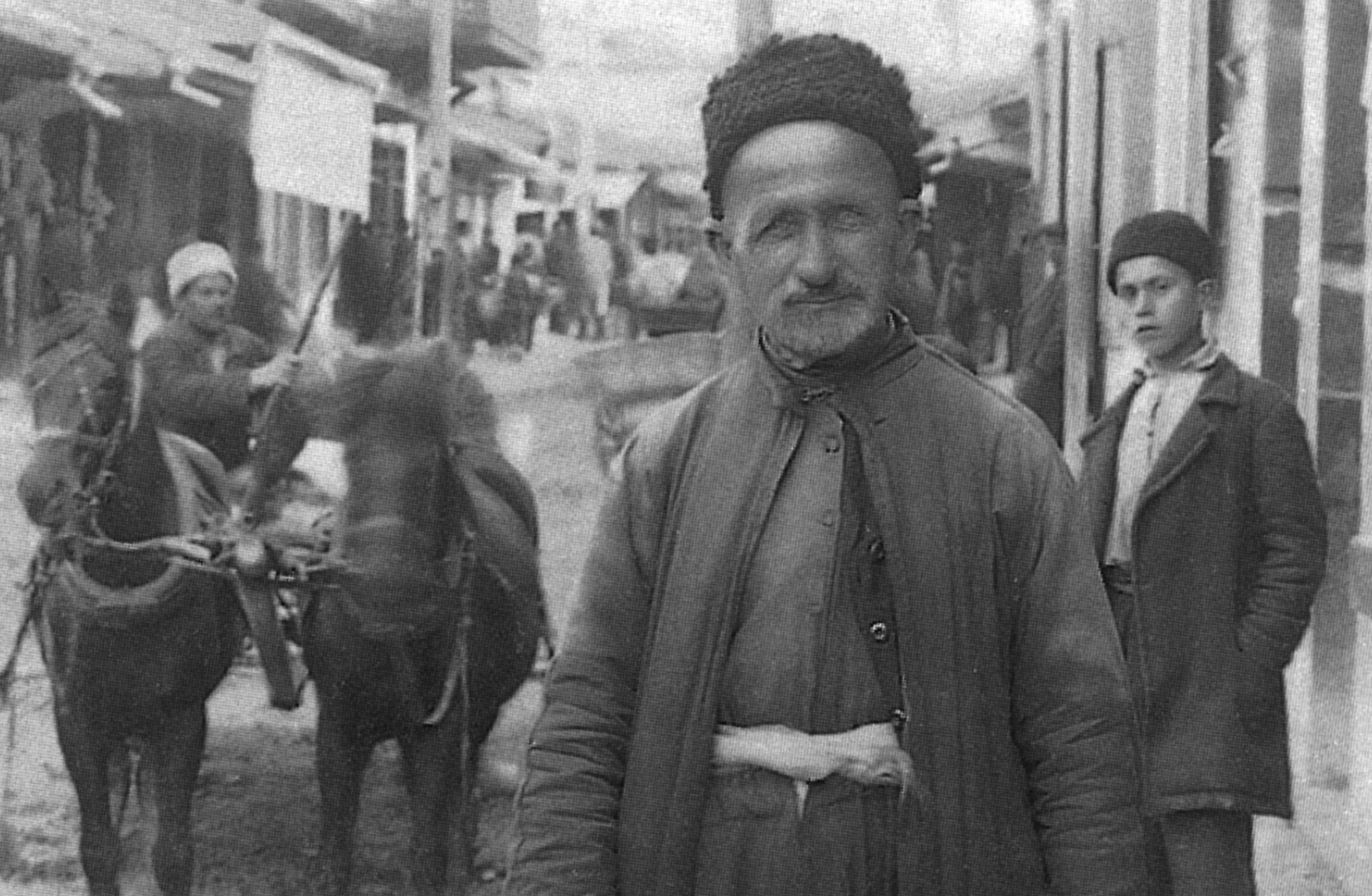
Novorossiya, an area comprising most of southern and eastern Ukraine, is ceded to the nascent Ukrainian Soviet Socialist Republic. This territory does not include Crimea – but does include Kharkiv, Luhansk, Donetsk, Odesa, and other oblasts.
Referring to this transfer more than nine decades later, President Putin said, “Why? Let God judge them…Russia lost these territories for various reasons, but the people remained.”
Reference to “the people” is significant on several levels.
1923
Large numbers of Ukrainian and Belarusian Jews are forcibly resettled in Crimea.
1925
Beginning of Stalinism. Stalin changes the name of the party from Russian Communist Party (Bolsheviks) to the All-Union Communist Party (Bolsheviks), indicating that polities outside Russia (e.g. satellite nations) were no longer a part of an all-encompassing Russian state.
1928
Industrial and agricultural collectivization instituted across the USSR.
c. 1930
Soviets engineer an influx of Slavic settlers. This greatly increases the already significant shift in Crimean demographics.
1932-1933
The Holomodor. A man-caused famine suffered by Ukraine and parts of what is now Transnistria. Historian consensus is the Holomodor was an intentional genocide inflicted upon Ukraine by the Stalin government as part of an ethnopolitical strategy to Russify Ukraine – though some scholars dispute the intentional part.
Estimates of the death toll range from 3.5 million to twice that, predominantly suffered by ethnic Ukrainians. All of Ukraine is affected, with reports of deaths by mas starvation originating in Kyiv, Odesa, Kharkiv, Donetsk, and other oblasts.
A birth deficit of another estimated 6 million during this time period is attributed to the Holomodor. This is reflected by a disparity in population growth (Ukraine’s increasing by less than a third and less than half of Russia and Belarus, respectively).
Many areas depopulated by death, forced resettlement, and migration are occupied by ethnic Russians.
1942
Reichskommissaria Ukraine. Crimea occupied by Germany. Nazis conduct ethnic cleansing of Crimean Jews. Estimates place the number of Jews murdered in the Crimean region over the next two years at 30,000 or more. Several thousand more Jewish Krymchaks were killed as well (or about 75% of their pre-war population).
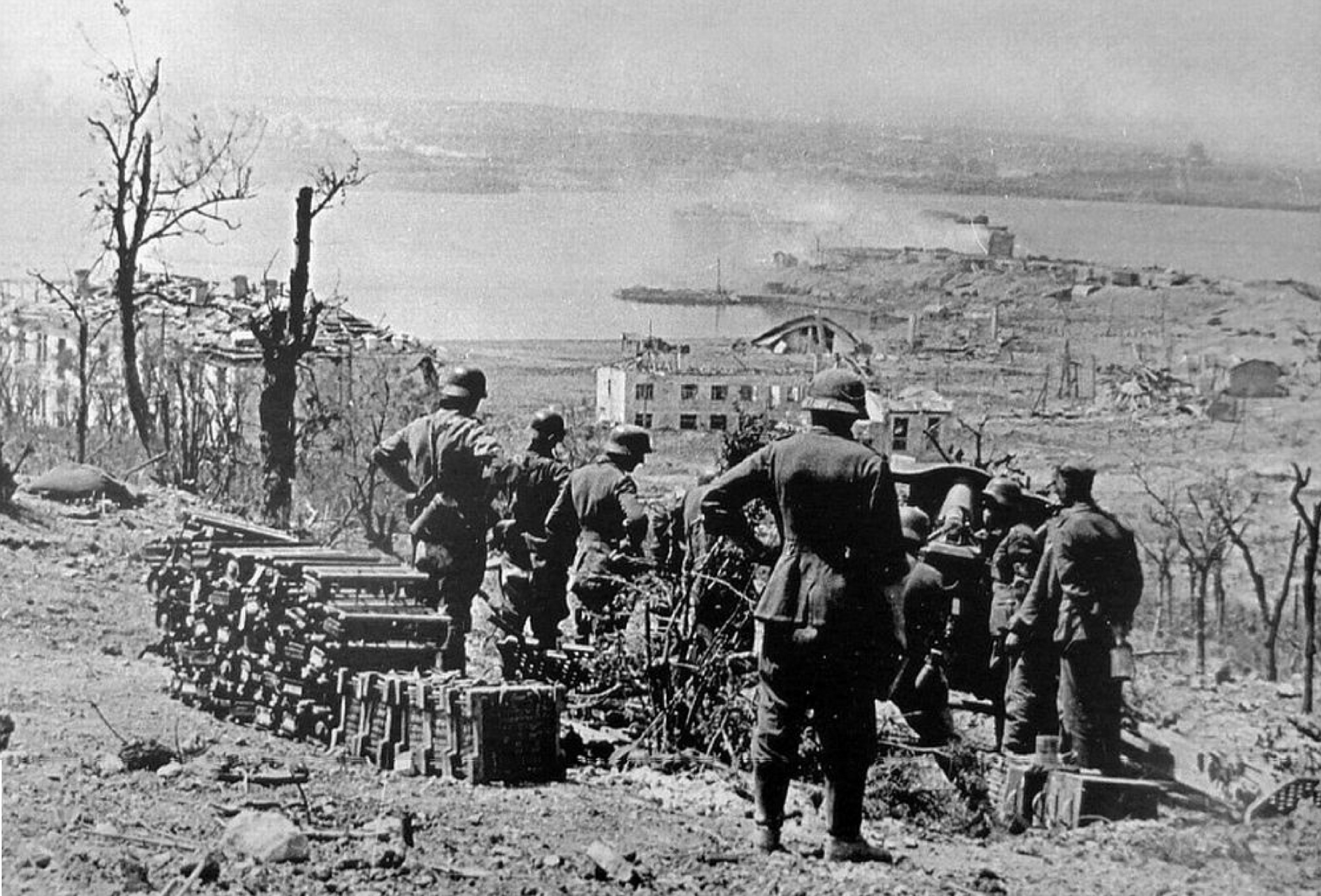
1944
Control regained by Soviets. April-May, successful evacuation of over 100,000 Axis troops by Romanian and German naval elements. Soviets initiate ethnic cleansing of Crimean Tatars, the Sürgünlik. Tatars comprise roughly 25% of the population when it begins.
May 1944
Crimea reduced from an autonomous republic to Oblast. It is now the Crimean Oblast of the Russian Soviet Federative Socialist Republic (colloquially Soviet Russia). Sevastopol treated as a closed/autonomous city due to its geopolitical and military importance.
1954
Crimea as a polity (the Crimean Oblast) administratively moved by Stalin’s successor, Georgy Malenkov out of Soviet Russia into Ukraine. Some sources say this occurred at the behest of Nikita Khruschev, not Malenkov.
The population of Crimea at the time is estimated to have been a little more than 1 million, that number being divided approximately 75%/25% ethnic Russians and ethnic Ukrainians. Only a very small minority is Tatar.
From 1954 until March 2014 Crimea considered Ukrainian territory.
1989
Perestroika. General Secretary of the Communist Party of the Soviet Union Mikhail Gorgachev authorizes the repatriation of Tatars to Crimea.
1991
February. Crimea declares its own sovereignty. Note: this occurs during combat operations of Operations Desert Storm in Iraq. Events three and in surrounding countries completely dominate the news cycle.
May 5th, Crimea declares its independence as the Republic of Crimea.
May 13th, Ukraine’s parliament (Verhkovna Rada) rejects and overturns the declaration. It compromises on an “autonomous republic” within Ukraine.
1994
US President Bill Clinton and Russian President Boris Yelton sign the Kremlin Accords. Among its provisions are the dismantling of the nuclear arsenal in Ukraine.
1996
The Constitution of Ukraine is signed into law.
1999
August. Vladimir Putin becomes Prime Minister of Russia
December. Prime Minister Putin becomes acting President of Russia after Boris Yeltsin resigns.
2004
The “Orange Revolution” begins in Ukraine following a disputed presidential election between Viktor Yanukovych and Viktor Yushchenko. A revote puts Yuschenko in office.
There are sufficient Tatars now returned to Crimea to comprise approximately 10% of the region’s population.
2006
Russia cuts off supply of natural gas to Ukraine (“pipeline diplomacy”) to exert economic and political pressure.
2007
More pipeline diplomacy. Russia cuts oil supplies to Poland, Germany, and Ukraine.
2008
Georgian military moves into pro-Russian breakaway state of South Ossetia. Russia invades Georgia.
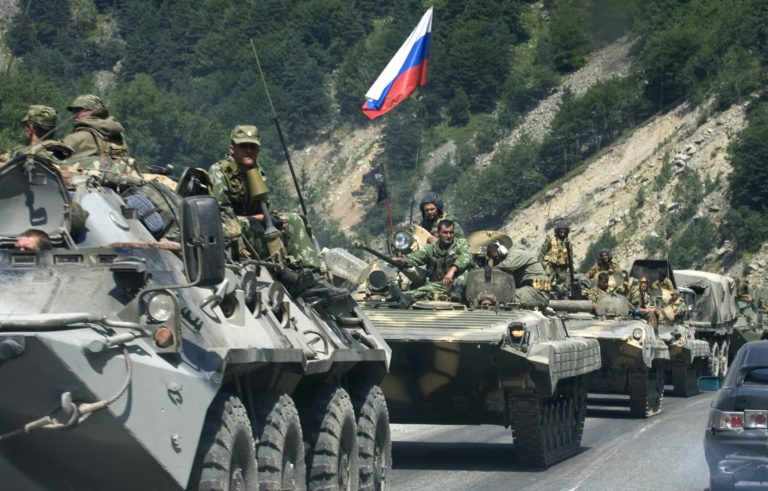
Feb 2009
Pravda runs an article critical of Russia gifting Crimea to Ukraine and calling for a referendum on the matter, reading in part,
“Khrushchev informed his comrades of the decision to deliver Crimea to Ukraine incidentally, on the way to lunch. ‘Yes, comrades, there is an opinion to deliver Crimea to Ukraine,’ he said casually. No one dared to express any protests, because a word of the first face of the Communist Party was law.
“The agenda of the session of the Presidium of the Central Committee of the Communist Party of the Soviet Union, which took place January 25, 1954, contained a question about the delivery of the Crimean region to the structure of the Ukrainian SSR [Soviet Socialist Republic]. The discussion of the question took only 15 minutes. The participants of the meeting approved the decree, and the region was given away to Ukraine for free.”
April 2010
Ukraine and Russia sign the Kharkov Accords, a treaty extending Russia’s lease on naval facilities at Sevastopol and elsewhere in Crimea until 2042 with an additional five-year renewal option for a long-term contract providing Ukraine with Russian natural gas at discounted rates. Detractors of the agreement say it was accomplished without due parliamentary procedure and even that it violates Ukraine’s constitution.
2012
Vladimir Putin elected President of Russia.
Russia steps up economic pressure on Ukraine, stopping imports from that country’s largest confectionery producer and intensifying customs checks on all Ukrainian goods at the border. This leads to an estimated $500 million in losses for Ukraine.
2013
November 2013
Under economic pressure and a range of unsubtle threats from Moscow, Ukrainian President Yanukovych turns away from the Eastern Partnership in Vilnius and does not follow through on plans to sign economic pacts with the EU.
Euromaidan (“Maidan Uprising”) demonstrations begin.
2014
- February 7. XXII Olympic Games begin at Russian city of Sochi on Black Sea coast.
- Feb. 19-21. Euromaidan protests evolve into the “Revolution of Dignity” in Ukraine. After weeks of violence and the death or injury of hundreds of civilians and dozens of security forces, President Yanukovych flees the country. Ukraine’s parliament votes to remove him from office by a unanimous vote of all ministers present.
- Feb. 22. Russian President Vladimir Putin (by his own unabashed admission) tells the leadership of Russian security services, “We must start working on returning Crimea to Russia.” This is consistent with the Russian law requiring protection of ethnic Russians (not necessarily Russian citizens), though it withstands no scrutiny from international law.
- Feb. 23. 2014 Winter Olympics end.
- Feb. 23. Pro-Russian demonstrations held in Sevastopol.
- Feb. 27. Russian troops, initially operating deniably and out of uniform (later earning the sobriquet “little green men”) take Crimea’s parliament, capture strategic sites, and install pro-Russian Sergey Aksyonov as chief executive. These forces are often accompanied or shielded by pro-Russian separatists (see “integrated force grouping”, 2018, below).
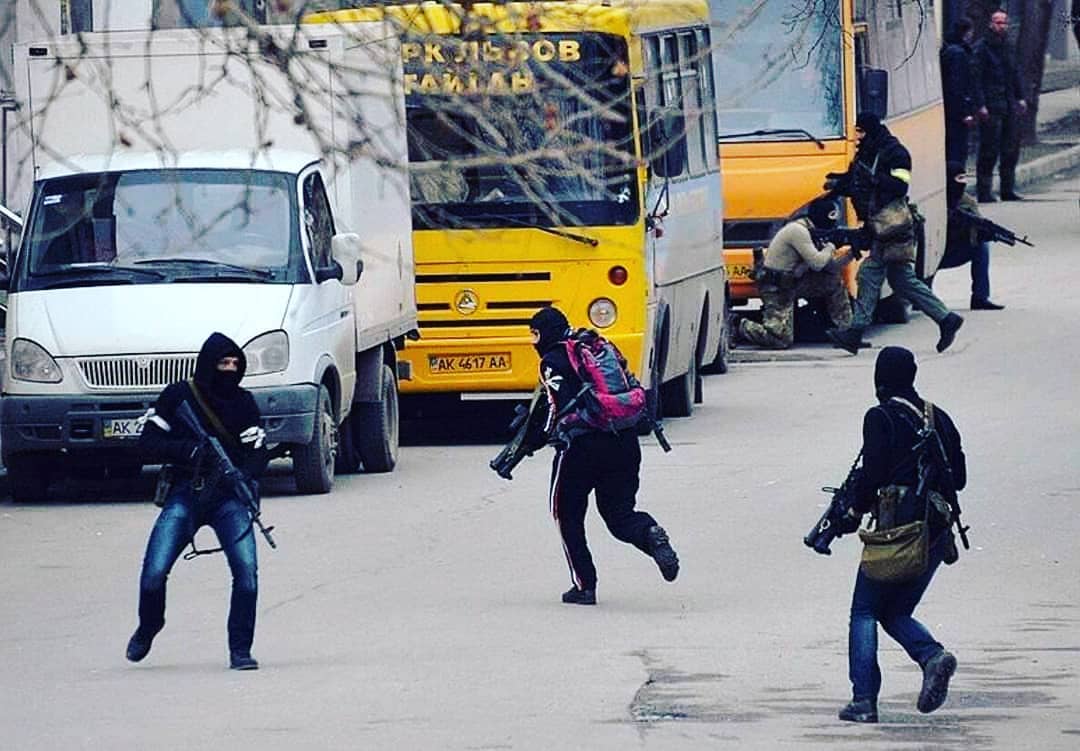
- March 16. Crimean status referendum. Crimean resident population asked to choose between joining Russia as a federal subject and restoring the 1992 Crimean constitution and Crimea’s status as part of Ukraine. A large voter turnout led to a reported 97% Russian integration. The referendum is deemed illegitimate by 13 members of the United Nations Security Council and declared invalid.
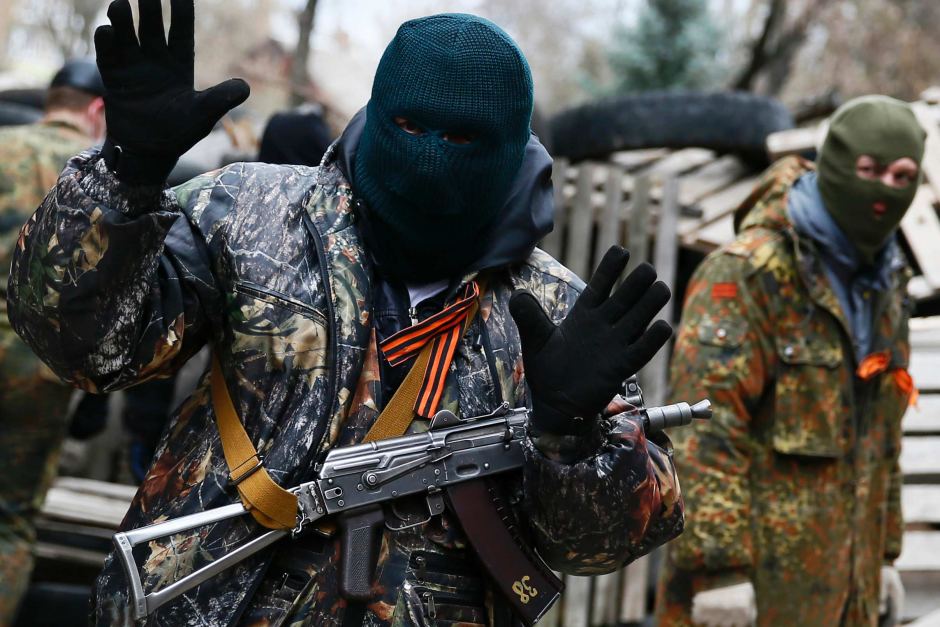
- March 21. Russia formally annexes Crimea. Crimea ultimately incorporated in two pieces: the Republic of Crimea and the Federal City of Sevastopol.
- March 24. The UK, US, Italy, Germany, France, Japan, and Canada temporarily suspend Russia from the G8, recognizing that Crimea is within Ukraine’s national borders and rejecting the 2014 Crimean Referendum. Russia is eventually removed and the pre-1997 G7 restored.
- April. A Gallup poll in Crimea immediately after the referendum found that “…93.6% of ethnic Russians and 68.4% of ethnic Ukrainians believed the referendum result accurately represents the will of the Crimean people.”
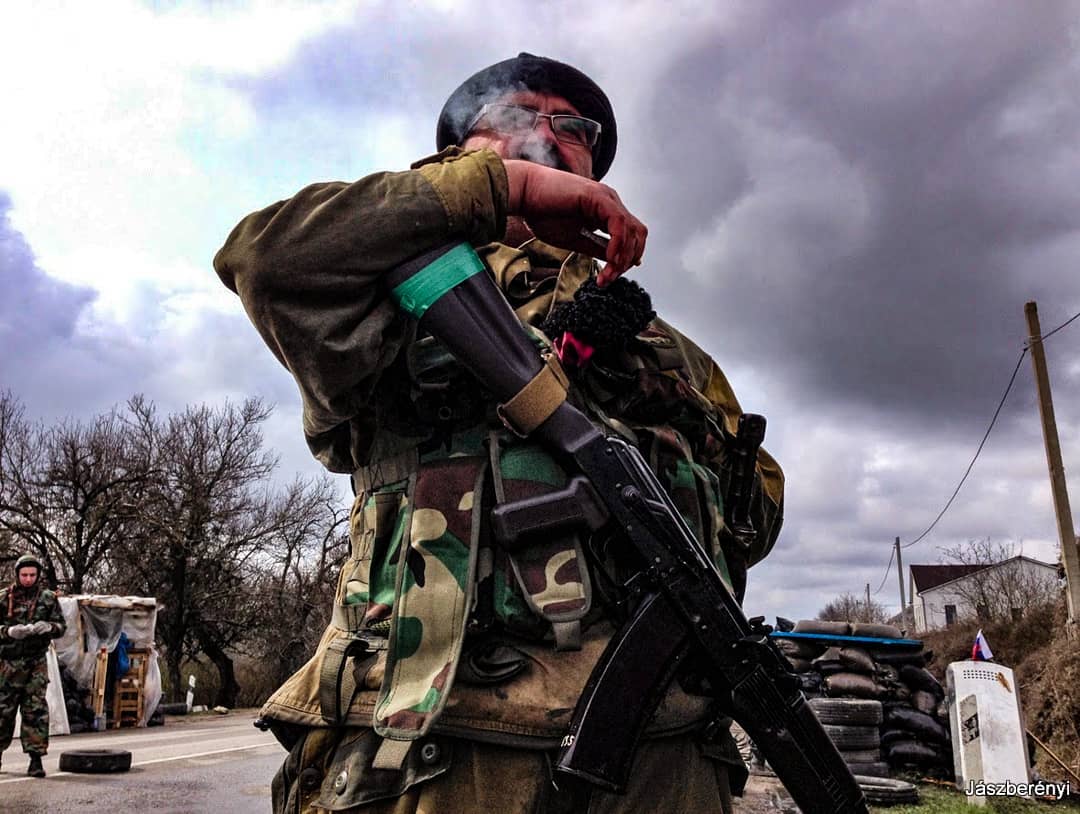
- April. The “Donbas War” begins. This is a conflict between the government in Kyiv and Russian-backed separatists in the Donetsk and Luhansk oblasts of Ukraine, collectively called the Donbas.
- April 7. Donetsk People’s Republic (DPR) unilaterally declares independence from Ukraine. It is officially recognized by Russia eight years later at the start of the invasion of Ukraine, February 21, 2022.
- April. US President Barack Obama imposes economic sanctions against Russia.
- April. The Parliamentary Assembly of the Council of Europe temporarily strips Russia of its voting rights.
- c. May 12. Luhansk Peoples Republic (LPR)unilaterally declares its independence from Ukraine. It is officially recognized by Russia eight years later at the start of the invasion of Ukraine, February 21, 2022.
- More pipeline politics. In place of the customary letter sent by Gazprom to its European counterparts came a letter not just to those petroleum firms but to 18 European heads of state from President Putin himself. In it Putin openly suggested that fuel supply to Europe could be cut off.
- July. Malaysia Airlines Flight 17 is shot down by a missile over eastern Ukraine.
- August. Pres. Putin uses the word Novorossiya in a speech approximately a month after the annexation of Crimea. Novorossiya is an old imperial (also described as colonial) term meaning “New Russia”.
⚠️ Novorossiya: This is a tacit acknowledgment not just of Russian approval but a not-so-subtle way of saying the disputed areas of Donbas, et al, are Russian. It has also been interpreted as a de facto legitimization of those militia’s activities.
- Moscow increases the price of natural gas to Western countries as talk of Kyiv joining the EU increases.
- October. Vladimir Putin delivers his “Valdai Speech” in Sochi, on the Black Sea coast (Valdai International Discussion Club). In it Putin described Moscow’s view on post-Cold War geopolitics. The bulk of it is a barely-veiled criticism of the United States and a rejection of the idea that Washington and capitalism were the arbiters of world events and the foundation of the post-Cold War world international system.
2015
January 1. Formal launch of the Eurasian Economic Union (EEU, alternately EAU), a political and economic alliance of Belarus, Kazakhstan, and Russia. Armenia and Kyrgyzstan become members shortly thereafter. Moldova granted observer status in 2017. Uzbekistan and Cuba obtain observer status in 2020.
July. Russia begins expanding the Sevastopol-based Black Sea Fleet with nearly a hundred new ships and submarines and building a new naval port at Novorossiysk. A new naval doctrine is published. In it NATO is listed as the top threat to Russian interests. Its language refers to NATO’s proximate positioning of men and materiel as “inadmissible”.
2018
Russian Col. Gen. Aleksandr Vladimirovich Dvornikov publishes an article in the Russian Military-Industrial Courier. The article discusses Russian operations in Syria, referring to what he calls “integrated force grouping”. Such a tactic involves combining SOF personnel, un-uniformed soldiers (likely PMCs), and local militia support. He refers to it as “expeditionary warfare on the cheap”. Despite the obvious difference in the operational areas, much of what he writes can be likened to previous operations in Crimea and future operations in Ukraine.
2022
February 21. Vladimir Putin formally recognizes the Donetsk People’s Republic and the Luhansk People’s Republic. Russia is the first UN country to do so.
February 22. Russia’s Federation Council authorizes the use of military force. Russian military forces and “volunteer” units backed by professional Russian units enter the DPR and LPR.
February 24. President Putin announces a “special military operation” to “demilitarize and denazify” Ukraine. Russian ground forces violate Ukrainian territorial integrity (stipulating the DPR/LPR remained legally part of Ukraine) and begin driving toward strategic targets. Ukrainian President Volodymyr Zelenskey enacts martial law, announces a distribution of weapons to virtually anyone capable of carrying (the so-called “Ukraine Second Amendment“), and a general mobilization of military-age males.
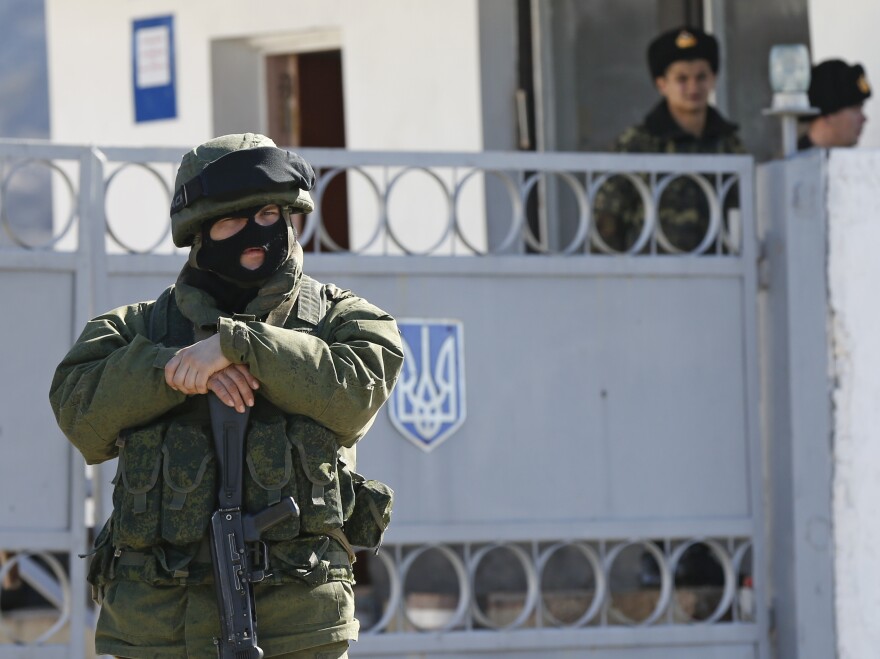
Unidentified armed man standing guard outside a captured Ukrainian military installation in Crimea. Large numbers of Russian soldiers (out of uniform, without insignia, masked for anonymity) assisted separatist militias in a swift takeover of the peninsula. When asked about the so-called “Little Green Men” Putin shrugged dismissively and responded that such uniforms and weapons were “readily available at military surplus stores”.
This is obviously a distilled version of events leading to the seizure of Crimea but is representative of Russian motivation and justification. A more complete accounting would take entire books, but we’ve done the best we can to encapsulate things.
If we’ve missed something or made an error, let us know in the comments!
DRW
David Reeder is a co-founder of Breach-Bang-Clear and editor of The Mag Life.

ReederWrites.com
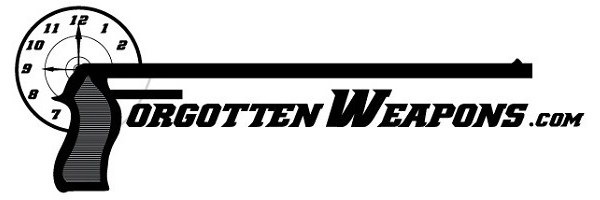
Seemqs that Kruschev was ukrainian, which might lighyen his attitude
Yes he was. So was Leonid Brezhnev and some other significant leaders in USSR.
https://en.wikipedia.org/wiki/Leonid_Brezhnev
During Khrushchev’s time the Ukraine has gained a special status inside of USSSR. There were located some significant industries in addition to development of rich mineral and coal sources. They even had a ‘consulate’ in Moscow. I’d compare it to status Quebec has inside of Canada.
The Ukranian SSR also got separate membership in the UN, the only Soviet republic that had this.
Spot on; although you would expect UN Ukraine delegation voting in line with ‘bigger brother’. Thanks for filling in.
This and other factors are indicative of how USSR leadership tried to ‘appease’ Ukrainian nationalism. I recall pictures and movies from that period – Ukraine was at the top. Also the Baltic republics did well, in some respect better than today. They were by far the best supplied with consumer’s goods and they also produced – furniture and electronics, not to mention traditional fishing.
Here is a video by Bold and Broken from his trip to Estonia; it will give you idea how it looks these days https://www.youtube.com/watch?v=1ltZR9IWXaE
At one point he chats with local taxi driver – listen to his rant!
Factually incorrect: Byelorussian SSR also had separate membership. In any case it was in 1945, so has nothing to do with the supposed later “special” status, and was widely seen just as a concession to the Soviet union allowing it to pad the UN membership a little. Stalin in fact wanted all 15 republics to have a UN membership, allowing only the founding members of the Soviet Union (with TSFSR being dissolved by that time) was a compromise.
Belarus also ,,Stalin at the start of the UN ,purely international political reasons ..
He(it…) came from russian speaking village(and family), but wasn`t russian nor ukrainian – just bolshevik lowlife.
This is a BIG and challenging subject. In addition the atmosphere today is charged with extreme emotions. From this standpoint, I question IF to bring this subject to general discussion on FW is a wise decision.
On the other hand, the general awareness of geopolitics and unbiased history should be encouraged. It is only thru knowledge the balanced view and understanding can be achieved. Let’s hope it serves to general atonement, so much needed today.
History is more complicated than what is generally believed, I cannot say known.
For family reasons I have been highly interested in Spanish civil war and then the transistion. Three books of communists do not tell the same civil war! The transition is unknown. Bombing Guernica was bombing London, Paris or Berlin as Gernica was a symbol (the TREE of Guernica) of the northern/Basquish Spain and also a real military target.Oviedo suffered much more;
But come back to Crimea, this article is extremely interesting and I think that the fact that Kruschev was apprently Ukrainian and had the same powers in 1954 as Putin has nowadays is also a point. Sebastopol is a keypoint.
There is a ‘subtle’ difference, part of both being heads of state, between N.S.Khrushchev and V.V.Putin. The former was a secretary of Communist Party of USSR while the later is a president. One was nominated by party while the second was elected in national election; it makes quite a bit of difference especially when we hear a word such as ‘dictator’.
By the way N.S.K did not end his carrier very well; he was stripped of his title and even (as I believe) ejected out of party. One of the reasons was his haphazard handling of Cuban missile crises. Also, he was deemed ‘too merciless’ in his critique of ‘cult of personality’ which reveled the inner workings of the system to the wide public. That was obviously NO-NO in 1960s. You can say about him that he was a “Gorbachev” who came too early.
yes but the two were autocratic “tsars”
Putting the formal differences aside between Khrushchev’s and Putin’s positions, Khrushchev rose to the top of the collective leadership of the post-Stalin Communist Party, which had long ago imposed absolute control over state and economy, and then sidelined his rivals. The party bureaucracy still existed and mattered. It eventually overcame him, without threat to its continuity of power.
There is no party with the power to do that to Putin. He used his civil post to create the political party he personally needed, while constructing a new economy as the nexus of a network of private fortunes. I think of him more like the ancient Tsars who slowly overcame the powerful nobles (who after all are private owners of capital) but were also themselves part of the feudal economy.
Overthrowing him means overthrowing a lot.
“By the way N.S.K did not end his carrier very well; he was stripped of his title and even (as I believe) ejected out of party.(…)”
According to https://www.britannica.com/biography/Nikita-Sergeyevich-Khrushchev he managed to survive attempt of removal from power in 1957
In June 1957 he was almost overthrown from his position, and, although a vote in the Presidium (i.e., the Politburo) actually went against him, he managed to reverse this by appealing to the full membership of the party’s Central Committee.
after his ultimate fall in power
For almost seven years thereafter, Khrushchev lived quietly in Moscow and at his country dacha as a “non-person”—officially a special pensioner of the Soviet government.
Recluse into private life might be granted for British politician/20th century, but not so much for leader of communist party/20th century. Compare to direct successor of chairman Mao, namely https://en.wikipedia.org/wiki/Jiang_Qing who ended with death sentence.
One very important factor seldom mentioned in the West is the origins of Russian Orthodox Christianity. It was received in Crimea, handed over by Byzantine Greek monks at around 930-940 AD. That time the forming Russian ethic was part of Kievan Rus. https://en.wikipedia.org/wiki/Kievan_Rus%27
The Orthodox Christianity saw a wave of renewal in post Soviet times and it became a major spiritual motivator and refuge for many Russians. Thus, something like taking away Crimea from them they perceive as unacceptable.
https://www.washingtonpost.com/news/monkey-cage/wp/2014/03/13/dont-underestimate-importance-of-religion-for-understanding-russias-actions-in-crimea/
Like DP, I question the wisdom of adding general history and its interpretation to the site, particularly since you can’t really tie it to weapons development. It’s a divisive issue, open to interpretation from all sides.
One of the things that I note Ian sort of slid by is the whole issue of Ukraine having been a foundational member of the UN. They’ve been treated as an independent nation for that purpose since 1945, and while everyone basically hummed a few bars and went along with the Soviet kayfabe (for our non-American audience, kayfabe is a shorthand term that involves acknowledging the staged, scripted nature of professional wrestling. If you’re in on the kayfabe, you’re inside the show…) that Ukraine was an independent nation under the Soviet federation–Along with Belarus, BTW.
I feel that this is something that isn’t getting enough attention, TBH. The current Russian story-line that they’re pushing is that Ukraine has always been an integral part of Russia, but… Yeah. Not so much–At least part of the reason why they went with the “We get another vote in the UN…” thing was that it was meant to serve as a bit of legerdemain when it came to tamping down post-WWII Ukrainian resistance and separatism–The “fiction”, as the Soviets saw it, that Ukraine was an independent nation was meant as a sop to the Ukrainians who still felt they’d been screwed over by the Holodomor and the Soviet regime in general. You can’t forget that the Soviets were still fighting Ukrainian resistance cells up into the 1950s, just like they were in the Baltic states. Hell, some of the Baltics didn’t come out of the woods until after the Soviet Union fell, although it had been decades since they’d done any combat operations…
The entire issue is fraught with potential for blowing things up on this site. I’d say leave it alone, outside of noting when and how such issues impinged on small arms development. Leave general history to the specialists in that arena, and just link to various places where you can get both sides of the story.
I will point out to a lot of our non-US readers that the basic fact is that Americans don’t actually get a lot of the angst behind issues that cause other people to start slitting throats–We have this cultural blind spot, there. Which I think comes from the essentially immigrant nature of our population. Yeah, we have a lot of Eastern Europeans in our cultural background, but… Most of them deliberately left their issues at home, and made sure that their kids only spoke English. There’s a huge disconnect, and most Americans simply don’t understand the way something that happened seven hundred years ago could still have relevancy and influence things going on today.
Although, with regards to our own historical record, if you explain it in terms of “Yeah, it’s just like the South after the Civil War…”, they’ll kinda begin to see the parallels.
This historical blindness is something people from outside the US just have to deal with. In a lot of ways, the US is an almost ahistorical society, with rare exceptions. You go ask the average soldier in the Army about the history of their service, and you’re not going to get much in the way of actual knowledge or coherency. Ask a Marine, and you’re going to get your ear talked off… All about the Marines, and not a hell of a lot else. That’s just the way it is.
Well said that it should be left alone. The author isn’t (to my knowledge) an expert on the subject anyway and there are certainly far better-qualified candidates to cover the subject from a more authoritative standpoint.
I agree with your first paragraph. There are at least two ways to interpret it. As for myself I am a keen student of history so for me it is an enjoyable subject. BUT, modesty in terms in certainly advisable. My general tendency is not to take sides and so is the case in the current conflict.
Pending of other readers interest I can direct them to sources so they can make up their mind. Finally, after all is said and done we cannot make a claim of finding a “solution” anyway.
Here is one of them I had on my mind; it is truly revealing. It is a story of continuous struggle http://www.encyclopediaofukraine.com/default.asp
To oversimplify it all, if one lives next to a large family of bears it would in one’s best interests not to become a threat to them. Should one do so, the bears are gonna do what bears do when they believe they are being threatened. Anyone encountered during the bear family’s attempts to neutralize the threat just might get eaten.
Not that anything justifies targeting civilians. But if you truly care about your civilians you make sure those bears know you are not a threat.
That view implies either that either the bears want nothing but to be left alone, or it is always right to suffer whatever the bear wants to do with you because resisting only makes it worse. Both propositions are questionable.
I do not mean to say that the current situation necessarily developed to Ukraine’s advantage but to issue such wide-ranging proclamations as it is always for the best to comply with the worldview of a bear is going too far.
More you dig into the reality, the more you feel you need to equipped yourself with a knowledge of previous history – there are undeniable connections. One strong factor of dormant animosity between Russia and Ukraine is surviving existence of “excessive Ukrainian nationalism” also commonly called Nazism. Sorry, it feels ugly, but that is what it is. You hear/ read about “neo-Nazis” all the time elsewhere in the world. So, let’s assume it is a REAL phenomenon.
They (the Nazi sympathizers) showed their presence plentifully during the Maidan bloody coup in 2014, represented primarily by the “Right sector”. They had a tremendous support of crowds present in Kiev. This on demand created grouping has grown like a mushroom on legacy of Stepan Bandera. https://en.wikipedia.org/wiki/Stepan_Bandera
He has been known to many Russians and Poles as an extremely unsavory figure. Many of his followers committed crimes in Ukraine Poland and to some degree in Czechoslovakia. Yet, current Ukrainian government has built memorials to him and even organizes actions in his memory. How is Russia, after loosing 25 millions citizens in struggle against Nazis during WWII supposed to swallow it? Of course it does not. It is about ingrained national sensitivities based on profound historical experience, more than anything else.
And here is the proverbial “poking bear in the eye”. You can do it only to the point the bear has enough and strikes back. This is intended to help in understanding of realities, not for purpose of justifying an aggression.
It goes back to the perception of what is justified/normal. Glorifying unsavoury figures is not supposed to cause military invasions. If it’s only perception that matters then the one with the most unhinged, unrealistic, aggressive perceptions get to dictate his will to others, because almost anything is preferable to an open war, so it’s just a common sense to do the other’s bidding.
And let’s focus on the Russian decision-makers. Either you exclude them from the realpolitic you preach because they cannot overcome “national sensitivities”, or suppose that they are at the mercy of Russian masses that demand extermination of Banderites due to the national sensitivities, which is definitely not true. If Putin wanted to promote peaceful coexistence with Ukraine after Ukrainian parliament ousted the president he definitely could do so, and he most likely could keep the Crimea under de-facto control after the annexation without intervening in Ukraine further.
I suppose you do know about this, just do not want to talk about it.
https://en.wikipedia.org/wiki/Babi_Yar
33.5 thousands of Jews and Poles killed by Banderites in 3 days.
I am also pretty sure you know what the Azov battalion is.
https://en.wikipedia.org/wiki/Azov_Battalion
Actually in state of demise by now.
That all fits together frighteningly with the mentioned Bandera cult and following Right sector.
On my part I was worried about coming consequences since the February 2014; they were waiting way to long. But then again, it depends on point of view and personal historical experience. I recorded a fair bit of it. Among it is a casual encounter with Soviet military NCO of Ukrainian nationality in DDR; he would not want to speak Russian. I was in my late teens and did not know why (we had compulsory Russian in school). Now I understand why – simple hatred. They lived in it for generations.
History, right wingers and previous ww2 incidents is just a (russian) propaganda bullshit so it would be not wise to repeat it (here) like parrot – true goal of invasion and war, like any other war, is land and resources grab.
Which Ukraine has plenty of, and could become a future competitor to Russia, supposedly in oil among other things.
Though, I gotta admit, some of the sanctions they are putting up feel unjust, hypocritical and borderline criminal, like confiscating yachts and other goodies of “oligarchs” who clearly did and could not ordered this war. This should stop as it could be remembered as thievery, tarnishing the other deserved sanctions.
It goes back and forth, back and forth. Do you believe there was a genuine threat to Russian people before the invasion of 2014 that the Russian intervention prevented? Same question about 2022.
It also shows how you talk about non-rational parts of Russian vs Ukrainian psyche: “national sensitivities” vs “simple hatred”.
And don’t avoid the question: you advocated realpolitik for Ukrainians (which includes taking into account objectively existing “national sensibilities”, no matter how irrational). Do you believe that the current Russian course is realpolitik or do you exclude Russian decision-makers from your demand?
“Excessive Ukrainian nationalism”? WTF does that mean?
The Ukrainians would likely be happy members of the Slavic Russian family, absent a few unfortunate historical facts like the Holodomor and being treated as handy farm animals by Mother Russia. The litany of grievances they have against Russian colonialism and abuse goes on and on and on. I’ve met and talked to Ukrainians who remembered the Holodomor and WWII–The woman who comes most clearly to mind described being a little girl hiding in a cupboard and watching as her neighbors broke into their little house and killed, butchered, and ate her mother, little sister, and baby brother. After the Commissars had come through and taken everything in the village to eat, and shot her father for being a Kulak “hoarder” because he’d tried to hold back enough grain to be able to plant for the next year and still feed his family through the winter. She managed to survive by hiding and God alone knows what else–I suspect that she may have eaten some of what was left of her family. In any event, a distant relative from one of the towns or cities came and found her, took her away, and she survived to be taken up as forced labor in Germany during the war, and then married an American soldier in the aftermath as a displaced person, passing as a Czechoslovakian so she wouldn’t be deported back to the Soviet Union.
You hear things like that, and you suddenly understand why the Ukrainians hate Russia with an undying passion. Russia has been an exploitive, abusive overlord for the entire time that the Ukraine has been forcibly bound to them, and the Ukrainians aren’t going to forget that any time soon. There was armed resistance to the Soviets well up into the 1950s across the Ukrainian countryside, and people remember the brutality with which it was suppressed. There are a lot of Ukrainians who’re going to have to be killed before Russia manages to pacify that country again, and I suspect the job is going to be a hell of a lot harder than the last time around, if only because the Ukrainians are a hell of a lot better armed, and the Russians don’t have the depth in their military or economy to actually do what they did before. They started this campaign with 148,000 soldiers, per reporting. If the casualty numbers we’re seeing are even anywhere near accurate, more than 30% of their forces are probably KIA, WIA, MIA, or POW. That’s pretty damn close to “combat ineffective” in terms of losses, historically speaking–For anything except really elite and highly motivated units. I think we may be looking at an actual humanitarian disaster here in a couple of weeks, with most of the Russian forces deployed in Ukraine becoming essentially left to die on the vine by their bosses. The logistical problems are that bad–Which I don’t think a lot of people really appreciate.
Here is an official report of Russian ministry of defense after one month of special operation in Ukraine https://topcor.ru/24675-minoborony-rf-podvelo-itogi-operacii-za-mesjac.html
As of today 25th of March they declared cca 1,300 KIA and cca 3,800 wounded with various severity. This is still rather mild burden in consideration of demands imposed on them.
It’s incorrect to assert that joining the EU is a necessary step to join NATO. There’s no such legal or doctrinal requirement and 6 EU members are not NATO Members, lest we also forget the US and Canada who aren’t European
Excellent comment. Yes, NATO and EU are not the same although the final effects are similar, e.i. power alliance. It is possible that the Ukrainian government relied too much on relation with the former. They did not have to do exactly that for the general betterment of the people; Russia might be ready to tolerate EU membership. As a result they hurt themselves – they were used. My favored experts on the subject of Russia vs Ukraine are prof. Steven Cohen (deceased) and prof. John Mearsheimer https://www.youtube.com/watch?v=JrMiSQAGOS4&t=366s
I do not quite agree with video’s title; it is indeed their own fault, more than that of West’s. Every nation is (in theory) master of its destiny.
This is also an excellent video of some senior people including prof. Mearsheimer discussing the subject. It has a priceless contents IMO. Let’s remind ourselves, one can be really experienced, while not having the ‘right’ point of view at the moment. People are prone to errors be it profs or laymen. Time will prove them to be right or wrong – or both.
https://www.youtube.com/watch?v=ppD_bhWODDc
That is true, if anything it is the other way around NATO is backdoor to the EU.
The EU is a far, FAR harder club to join then NATO, there is almost no aspect of law and society that is unaffected by a EU membership, whiole NATO is “just” a security cooperation.
I think you are correct. If we look at as an example Czech Republic, they were invited in to NATO at Madrid conference in 1997 and consequently admitted in 1999. Their admission to EU materialized in 2004. So, it almost looks as if the former association was a prerequisite. I leave on side the process which lead to it, just let’s be sure there was a significant resistance on part of general public. But, as in all other former East block countries (save for Serbia) it was ‘somehow’ pushed thru.
“(…)Czech Republic(…)”
All members of V4 did become NATO members before becoming EU members
Czech Republic, inside NATO since March 1999, inside EU since May 2004
Hungary, inside NATO since March 1999, inside EU since May 2004
Poland, inside NATO since March 1999, inside EU since May 2004
Slovakia, inside NATO since March 2004, inside EU since May 2004
Therefore, for all but one of above mentioned entry into NATO and entry into EU in different centuries.
“It’s incorrect to assert that joining the EU is a necessary step to join NATO.(…)”
Foremost EU is economical in its nature, whilst NATO is defensive, therefore both are orthogonal. It is possible to belong to one of them (see Austria which is inside UE, but not NATO xor Turkey which is not inside EU but is inside NATO).
At the begining was the kievian Russia. Some invasions from east tribes made this explode and one of the splinter was the moscovian Russia. so that kiev could rule moscow
My perception (and I admit I need to do more reading) is that the Ukrainians are the True Slavs. The origin of Russians is said to be out of today’s Sweden; there was allegedly even a settlement with name Rusa. We are talking about early A.D. centuries. Do not quote me on this, I am just recollecting what I read elsewhere a long time ago.
These Viking “Rusans” became incorporated into the Kievan Rus and later, as you say splintered into new location known as Moskva; the reason they are called by Ukrainians “Moskals”. No doubt the Mongol expansion into Europe was the driving engine behind all this. All of eastern Slavs became for long time Mongol vassals and it left traces in their nature; there is some truth to what some critics claim.
The essence of Russian conversion into Slavs is thru acceptance of Orthodox Christianity from Greeks; that is what made them what they are today. This is exactly opposite to what godless communism is about. Faith/ religion is lot more than it seems on the surface – it projects into values, customs, language and way of life. It invokes spirituality. Look at characters in Cyrillic alphabet, they resemble Greek letters.
You really have a lot of jumbled information here.
Viking Rus was always a relatively small elite, there was no great population movement from Sweden, so majority of population was always Slav (and those that wasn’t were Finnic people who later became assimilated not Norse Germanics). Majority of Russian (people who belong to the Rus, people ruled by the Rus) population never became Slavs, because they were Slavs all along, even when pagan.
While Kiev was built by the Slavs Kievan State is credited to the same Vikings who conquered both it and the northern Novgorod.
In general both Ukraininan and Russian national mythos places about equal importance on Viking Rus. If anything it’s the Mongolian invasion that is often singled out as separating Ukrainians and Russians (funnily enough you can find both sides claiming that they kept the Rus purity while Russians were Mongolized, or Ukrainians Polonized (techninically southern refions were conquered by Lithuania but after the Poland-Lithuanian union Poles came to the forefront even in the former Lithuanian lands).
You really should explore the history more before opining on it. Your picture of Russia has very little to do with reality.
P.S. And while for you Russian letters may look similar to Greek for Russians both Greelk and Latin scripts are equally non-intuitive (and the Latin is more likely to be known beacuse of the cultural dominance).
Is a three that should be a there. Didn’t read much politics. Seems to be an Olympic sub plot though. Maybe the Bears were enraged by not seeing any Russian competitors, and decided to go on a rampage.
For those who want to see small (hand held) arms in hands of soldiers and volunteers
https://www.thefirearmblog.com/blog/2022/03/23/small-arms-of-the-war-in-ukraine/
It is quite a display; many are of vintage type. Very few optics on rifles.
Great article! Unfortunately the pictures aren’t visible, at least to me. Maybe look over the coding?
Am I the only one who can’t see the images on this article?
No, you and David Axman are not the only ones missing pictures. I do too. Some links set wrong I guess.
Can I ask a cartrige/ small arms related question. Ukraine probably has large stocks of PPS43’s and maybe PPSH41’s If they had real urban combat in the cities is the 7.62×25 cartrige in these guns capable of defeating russian body armor at 50 metre ranges
https://www.youtube.com/watch?v=jUBSh0Ok6cU This explains it much better.
I would dispute some aspects here.
First, as has been pointed out, EU membership as absolutely not a precursor to joining NATO. Finland, for instance, an example of a country in a similar geographical situation, has traditionally adopted neutrality despite being a full EU member state. Britain is decidedly in NATO, yet now outside the EU, and heck even France has had a confused relationship with NATO up until relatively recently. This is important, as the logic that Putin *had* to invade is contingent upon this, and I don’t believe it can be put about in good faith that membership of one necessarily includes a commitment to the other. This brings me to the main issue, which is that of teleology. I don’t believe that this conflict was an inevitability, and I don’t agree with the thrust of the article that tries to imply it. Russia explicitly recognised Ukrainian borders as inviolable in 1997 (an interesting omission from this article), and that treaty was only ditched years after Crimea was seized when Ukraine realised Putin had no intention of honouring it. As for the law protecting Russians abroad, this is frankly so ill defined as to render itself deeply suspicious, and in any case must be seen as a deliberate pretext for war or interference in the first place, particularly given the artificial creation of truckloads of new citizens via indiscriminate passport handouts in neighbouring states. In addition, I think it’s important to discuss the weaponisation of history by the Putin regime. I do not intend to discuss specifics here, but more the overarching thread. Firstly, to be a bit controversial, putting any stress on Ukrainian or Crimean history at all is in my opinion misplaced. A key aspect of Putin’s presentation of the current war has been through the supposed non-existence of Ukraine, and how this is confirmed through a reading of history that denies any sense of agency or identity at all to Ukrainian people. The problem is that engaging with and seeking the justification for this war in history at all is, in essence, buying into this propaganda that history or inevitability is somehow behind it, rather than Putin and the Russian government and their strategic aims. To demonstrate by way of a comparison, Russia never saw Kurdish people in Syria as people who had been oppressed by an artificial regime and borders, despite a rich heritage and the state of Syria (which it supported) being a largely artificial post WW1 creation. To labour the point further, this is similarly shown by Russian recognition of numerous state entities in post-colonial Africa, which often have even younger histories. The other reason why history as root cause falls down here is that Russia has only ever invoked this history on countries that aren’t toeing the line. Belarus remains not subject to regime change or assault on the grounds of shared history despite the fact that Russian ties are as close as Ukraine (maybe more so). To restate the point, the causes for this war lie with Putin and his Government, not because of Ukraine’s cultural or historical connections with Russia.
In sum, none of this is meant to cloud the fact that there are strategic reasons for the Crimean annexation (no matter their illegality). That much is obvious, and indeed I think can be seen to have been tacitly admitted by world powers when their only response was a lukewarm raft of sanctions. The problem is that this mythos of greater Russia has now been deployed to far worse ends, and I think engaging with the idea the Russia has somehow been forced by its history or indeed any other factor to invade Ukraine is at best misleading and at worst disingenuous. Realpolitik exists, sure, but nations still have choices within it, and there are many other pathways that could have been taken here.
I passed on reading this yesterday because it was not within the general remit of Forgotten Weapons. This morning I thought I should take a look. Thank you very much for presenting this. The points are well written, documented and argued and nothing contradicted my limited general knowledge of the subject. It is very rare that I am able to say that about *anything* I read today.
Sadly I cannot say the same of Victor Davis Hanson’s writing on the subject. He is an “esteemed military historian” and classicist whose writing on the subject consists of ad hominem attacks on Putin without any supporting logical argument. Precisely the type of writing he disparages widely in his writing.
I should like to ask that you post a link to his blog as I found a lot of David Reeders in my search.
War Nerd stomped up and down on VD Hanson repeatedly in the 2000s but no one got the point.
http://exiledonline.com/the-war-nerd-vs-neocon-knucklehead-victor-davis-hanson-a-war-nerd-classic/
And this post here ladies and gentlemen is the reason discussing these very current events in and around Ukraine is hard in a civilised manner. There is always someone barging in and dropping his emotional excretion. Can you even find Ukraine on a map, preston? Did you care one bit about Ukraine and its peoples and what is going on there the last few years, before the current media campaign flooding every screen and page of newspaper for a month now?
LOL get a life dude LOL
yep anyone who doesnt echo you is just a moron huh? what an egotistical dipshit you are.